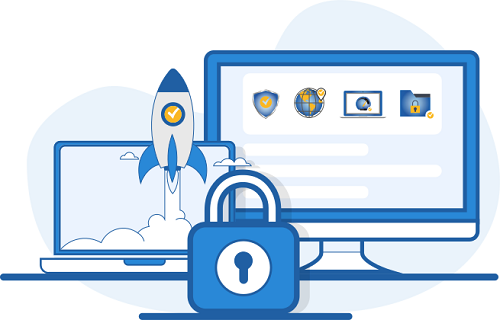Program Description

This Master's degree program is designed to meet the demand for cyber security
professionals within government, law enforcement, Academics and industry. The course
engages with, and provides a pathway for, information technology professionals seeking to
commence or further progress their careers in the cyber security domain. It is also relevant
to those seeking to enter the IT profession who have no previous experience in the cyber
discipline.

What Skills you will Learn


Program Highlights

Degree Awarded
_________________________
Master of Science in Cyber Security
Commencement of Session
_________________________
January 2023 (then 4 times a year; Oct, Jan, Apr or Jul)
Study Model
_________________________
Online Studies / E-learning
Approval
_________________________
To be approved by the Ministry of Education and Research, Estonia.
Duration
_________________________
24 Months
Credits
_________________________
120 ECTS/EAP ( European Credit Transfer and Accumulation System)
Program Learning Outcomes

Program Curriculum

Provides knowledge and skills required for understanding and
managing IT and/or cyber security-specific subjects.
Contains courses focused on IT essentials and important components
of IT – networks, programming, databases, web applications, etc.
Contains courses focused on cyber security details, IT
systems administration and development (with security-special properties),
penetration testing, malware, reverse engineering, forensics, and cryptography, and
also a corresponding internship.
Student can freely choose any courses offered by the institute without any restrictions.
Classical thesis (formulation of a practical problem with
corresponding analysis and solution) related to cyber security or to an area, where
cyber security plays an important role.
Mandatory Core Courses

Elective Courses (Any 7)

Program Structure

| Semester 1 | ||||
|---|---|---|---|---|
| S. N. | Course | Course Name | EAP | Hours/Week |
| 1 | MCSC0107 | Principles of Cyber Security | 6 | 6 |
| 2 | MCSC0102 | Fundamental of Computer Networking | 6 | 6 |
| 3 | MCSC0109 | Cyber Security Techniques | 6 | 6 |
| 4 | MCSC0104 | Computational Number Theory and Cryptography | 6 | 6 |
| 5 | MCSC0108 | Software Lab for MCSC0109, MCSC0104 | 6 | 6 |
| Total For The Semester | 30 | 30 | ||
| Semester 2 | ||||
|---|---|---|---|---|
| S. N. | Course | Course Name | EAP | Hours/Week |
| 1 | MCSC0201 | Web Development Tools | 6 | 6 |
| 2 | MCSC0207 | Cloud Infrastructure and Services | 6 | 6 |
| 3 | MCSC0208 | Application and Network Security | 6 | 6 |
| 4 | MCSC0209 | Cyber Attacks and Counter Measures: User Perspective | 6 | 6 |
| 5 | MCSC0210 | Software Lab for MCSC0201, MCSC0208 | 6 | 6 |
| Total For The Semester | 30 | 30 | ||
| Semester 3 | ||||
|---|---|---|---|---|
| S. N. | Course | Course Name | EAP | Hours/Week |
| 1 | MCSC0301 | Mobile Operating System and Security | 6 | 6 |
| 2 | MCSC0304 | Information Security Assurance: Framework, Standards and Industry best practices | 6 | 6 |
| 3 | MCSC0305 | Digital / Computer Forensics | 6 | 6 |
| 4 | MCSC0307 | Security Analysis and Reporting | 6 | 6 |
| 5 | MCSC0308 | Software Lab for MCSC0305, MSSC0307 | 6 | 6 |
| Total For The Semester | 30 | 30 | ||
| Semester 4 | ||||
|---|---|---|---|---|
| S. N. | Course | Course Name | EAP | Hours/Week |
| 1 | MCSC0407 | Hacking Techniques | 6 | 6 |
| 2 | MCSC0408 | Cyberspace and Its Governance | 6 | 6 |
| 3 | MCSC0409 | Software Lab for MSCCS-401 | 6 | 6 |
| 4 | MCSC0410 | Cyber Security - Case Study/Dissertation | 12 | 12 |

